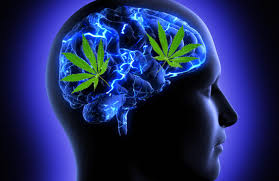
Breaking News
6.5x55 Swedish vs. 6.5 Creedmoor: The New 6.5mm Hotness
Best 7mm PRC Ammo: Hunting and Long-Distance Target Shooting
 Christmas Truce of 1914, World War I - For Sharing, For Peace
Christmas Truce of 1914, World War I - For Sharing, For Peace
Top Tech News
 EngineAI T800: Born to Disrupt! #EngineAI #robotics #newtechnology #newproduct
EngineAI T800: Born to Disrupt! #EngineAI #robotics #newtechnology #newproduct
 This Silicon Anode Breakthrough Could Mark A Turning Point For EV Batteries [Update]
This Silicon Anode Breakthrough Could Mark A Turning Point For EV Batteries [Update]
 Travel gadget promises to dry and iron your clothes – totally hands-free
Travel gadget promises to dry and iron your clothes – totally hands-free
 Perfect Aircrete, Kitchen Ingredients.
Perfect Aircrete, Kitchen Ingredients.
 Futuristic pixel-raising display lets you feel what's onscreen
Futuristic pixel-raising display lets you feel what's onscreen
 Cutting-Edge Facility Generates Pure Water and Hydrogen Fuel from Seawater for Mere Pennies
Cutting-Edge Facility Generates Pure Water and Hydrogen Fuel from Seawater for Mere Pennies
 This tiny dev board is packed with features for ambitious makers
This tiny dev board is packed with features for ambitious makers
 Scientists Discover Gel to Regrow Tooth Enamel
Scientists Discover Gel to Regrow Tooth Enamel
 Vitamin C and Dandelion Root Killing Cancer Cells -- as Former CDC Director Calls for COVID-19...
Vitamin C and Dandelion Root Killing Cancer Cells -- as Former CDC Director Calls for COVID-19...
 Galactic Brain: US firm plans space-based data centers, power grid to challenge China
Galactic Brain: US firm plans space-based data centers, power grid to challenge China
Harvard Study: Smoking Cannabis Actually Improves Brain Function

Preliminary findings from McLean Hospital, Harvard Medical School, and Tufts University indicate that pot actually improves cognitive performance.
Don't believe the hype – cannabis is not a gateway drug, it is a medicine. From helping people naturally relieve their anxiety to literally curing cancer (over 100 studies have validated this), the plant is incredibly therapeutic. Because it is classified as a Schedule 1 drug, however, marijuana is still illegal in many U.S. states.
Fortunately, new findings from a study published in Frontiers In Pharmacology seem to support arguments for its decriminalization. Preliminary investigations by medical researchers from McLean Hospital, Harvard Medical School, and Tufts University indicate that pot actually improves cognitive performance.
For the study, entitled "Splendor in the Grass? A Pilot Study Assessing the Impact of Medical Marijuana on Executive Function," behavioral scientists tracked 24 certified medical marijuana patients over a three-month dosing period. The patients were repeatedly measured for cognitive proficiency through a series of intelligence tests, including the STrrop Color Word Test and Trail Making Test.
Lead researcher, Staci Gruber, is the director of the Marijuana Investigations for Neuroscientific Discovery (MIND) program at McLean Hospital. As KINDLAND reports, her initial report is positive. The first benefit reported is that medical marijuana led to patients excelling at brainteasers with enhanced speed and accuracy.
Says the McLean Hospital report:
"After three months of medical marijuana treatment, patients actually performed better, in terms of their ability to perform certain cognitive tasks, specifically those mediated by the frontal cortex," explained Gruber.
Study participants also reported improvements in their specific clinical conditions, sleep, and overall health as well as a decreased use of conventional medications, particularly opiates.
"We saw a 42 percent reduction in opioid use," reported Gruber. "This is significant, particularly for those of us in Massachusetts and other areas of the country where the opioid epidemic is ravaging so many. This preliminary finding certainly warrants deeper and broader investigation."

 The State's Last Stand
The State's Last Stand


